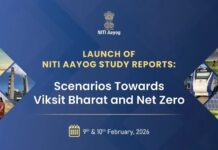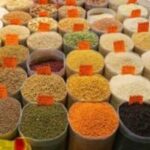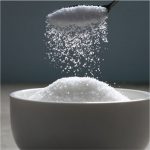Road Transport and Highways Minister Nitin Gadkari has strongly rejected claims that blending 20 percent ethanol with petrol harms vehicle engines or that many vehicles are incompatible with E20 fuel. He attributed the spread of such information to the petroleum lobby.
“This is completely false. We have done trials on old cars. In Brazil… they do 27 percent blending but there have been no complaints. There are some people in the petroleum lobby who are spreading this…we have verified everything on technical grounds,” the minister said in an interview with Moneycontrol.
India reached its goal of 20 percent ethanol blending, five years ahead of schedule, as part of its strategy to cut emissions and reduce reliance on imported fuel.
Defending the ethanol initiative, Gadkari called it a “clean and efficient fuel” that supports farmers, stimulates the rural economy, and helps lower oil imports. “Our policy is focused on import substitution, pollution reduction, and cost effectiveness. Isn’t improving public health worth it?” he said.
Recently, in a detailed release, the Ministry of Petroleum and Natural Gas (MoPNG) stated that ethanol blending is a national programme. Some seek to derail it by fomenting fear and confusion in the minds of car owners by selectively picking information and creating a false narrative that insurance companies will not cover car damage due to use of E20 fuels. This fear mongering is totally baseless and has been clarified by an insurance company whose tweet screenshot was deliberately misinterpreted to create fear and confusion. Usage of E20 fuel has no impact of the validity of insurance of vehicles in India.
India is steadily advancing in the ethanol sector, with consistent year-on-year growth in production, blending levels, and overall capacity. This progress is reshaping the nation’s energy landscape while also contributing to economic development and promoting sustainable growth in rural areas.
Government has been promoting the blending of ethanol in petrol under the Ethanol Blended Petrol (EBP) Programme with multiple objectives. As a green fuel, ethanol supports environmental sustainability efforts of the Government. It reduces dependence on crude oil imports while saving foreign exchange and promotes the domestic agriculture sector. EBP Programme has resulted in expeditious payment to farmers of more than Rs.1,25,000 crore from Ethanol Supply Year (ESY) 2014-15 up to July 2025, besides savings of more than Rs.1,44,000 crore of foreign exchange, net CO2 reduction of about 736 lakh metric tonnes and substitution of more than 244 lakh metric tonnes of crude oil. Under the EBP Programme, Public Sector Oil Marketing Companies (OMCs) achieved the target of 10% Ethanol blending in petrol in June 2022 i.e. five months ahead of the target during ESY 2021-22, 12.06% in ESY 2022-23 and 14.60% in ESY 2023-24. Further, for the ongoing ESY 2024-25, the blending percentage has gone up to 19.05% as on 31.07.2025. During the month of July, 2025, Ethanol blending of 19.93% has been achieved.
In July 2025 alone, Oil Marketing Companies (OMCs) received 85.3 crore liters of ethanol under the EBP Programme. This brought the cumulative ethanol offtake by OMCs to 722.7 crore liters over the November–July period.
Official data indicates that a total of 87.9 crore liters of ethanol was blended into petrol in July 2025, pushing the cumulative ethanol blending volume to 749 crore liters from November 2024 to July 2025.

















